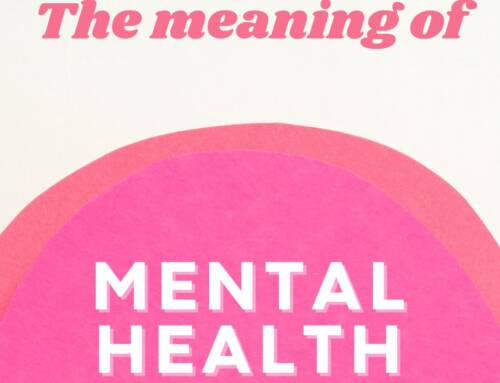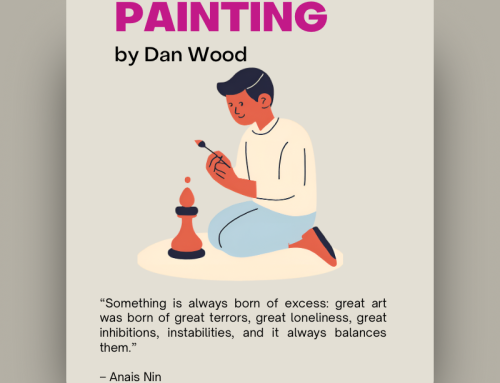For every *480 people that will type in ‘I love Christmas’ into Google or Safari this month, over 1600 will type in ‘I Hate Christmas’.
It’s okay to love Christmas, and it’s okay to find it a little tricky emotionally.
The problem comes when you find it so hard that it impacts your life negatively.
Before we look at what makes Christmas so extreme when it comes to emotions, we’d like to share a personal story with you from a friend of the AoC Trust.
A ‘perfect’ Christmas
“I don’t hate Christmas; I love it — a bit too much. I look for a perfect Christmas.
“I was like every other child that couldn’t sleep on Christmas Eve. I used to run up and down the stairs to tire myself out. I’d wait for Christmas day with enough pent-up excitement to make my heart beat faster and my tummy turnover with butterflies.
“Like my friends’ houses, we’d have a tree, and we also had gold and red snowflake decorations that draped from corner to corner on the ceiling — I can still smell the dusty plastic from years of storage — a true 80s memory.
“At the time, I loved all the presents, perhaps not realising the debt that wasn’t so easy to unwrap.
“I woke up on Christmas morning completely oblivious to what would unfold like tape being peeled slowly off the wrapping paper.
“Yes, other Christmases had included shouting, but this Christmas, I had a never-ending optimism that it would be perfect. ‘Perfect’ is a word that would later cause trouble in adulthood.
“I think I’ve blocked out what started the argument, but I distinctly remember the tree being launched up the garden and feeling very confused and upset.
“Today, I look to make each Christmas perfect. Of course, there is no such thing. We cannot control what happens in a day any more than we can the weather, and striving for perfection brings a kind of parental stress like no other at this time of year. You could say I’m working on it.” An anonymous friend of the AoC Trust
Christmas Stress
Christmas can be incredibly stressful.
From the financial burden and emotions that are associated with gifting, decorations, and food to spending time with people for longer periods of time than usual — it can be tough.
Though we see many messages reinforcing that Christmas isn’t about the ‘things’ we get but the love we give and receive, in reality, we all feel the pressure.
If we have the money for an amazing Christmas, we often overcook ourselves as much as the turkey.
If we don’t have the money, we often feel quite desperate and can look to obtain money to please others or buy gifts for children, which later causes pressure from debt. Reaching out to local food banks can help relieve the pressure at Christmas — you won’t be alone in asking for help.
Christmas can even become a competition — which is not healthy, but it happens.
It’s important to remember, though, that Christmas is only one day in 365. Placing unnecessary pressure on yourself can often lead to illness, either physically or mentally.
How to reduce stress at Christmas:
- Be true to the Christmas you would like — watching the telly in your PJs is fine.
- Set boundaries for all areas that make you feel stressed — including visits.
- Try not to aim for perfection — we can’t control everything.
- Set a budget for Christmas, and don’t go over it.
Alone at Christmas
Another reason why Christmas can be tough is feeling alone.
Whether it’s looking at social media and seeing happy families or missing a loved one so much, that Christmas brings tears rather than joy — the festive season makes a lot of people feel alone.
You can even feel alone in a room full of people.
Loneliness is difficult, and it’s okay to feel upset.
How to tackle loneliness at Christmas:
- Try to plan your time out over Christmas — break the day up with activities you love.
- Look to your community for events and support — churches have a number of events running up to Christmas.
- Link up with like-minded people in online hobby groups or community groups (often advertised in the newspaper).
- Consider being honest with friends and family (where you feel you can), and ask if you can visit at Christmas time.
If you feel lonely in a room full of people, then it might be time to consider a therapist — you can talk through the reasons why you feel that way.
Christmas Depression
It might start with feeling sad when a Christmas song is played, and then days turn into weeks of feeling sad.
The truth is, sometimes depression hits us from nowhere. It doesn’t arrive on a schedule. It blindsides us when we’re least expecting it.
Depression is when we feel sad for weeks rather than days.
How to combat depression at Christmas:
- Allow time for self-care (a bath, quiet time, music, or something that is safe and makes you happy).
- Take your medication if you are prescribed it — Christmas isn’t a good time to stop, and antidepressants need to drop in dose as guided by your GP. Don’t go cold turkey (don’t stop immediately unless advised to do so by a GP).
- Try to avoid too much alcohol, sugar, and caffeine as this can cause mood highs and lows.
- Exercise and talk with good friends — they both release endorphins that make you happy.
- Consult a therapist or your GP if your depression lasts for weeks rather than days.
Christmas Suicide and Self-Harm
If you are reading this and you’ve had thoughts of suicide or self-harm, it’s important to know that you are not alone, and if you reach out to the right people — you will get help.
You can call 111 for NHS medical advice, 999 in emergency, text ‘support’ to 60075 (the AoC Trust) to start to arrange therapeutic support, or call the Samaritans on 116 123 for 24/7 support 365 days a year.
Why self-harm isn’t the answer at Christmas:
- You might feel alone, but there are people who do care about you.
- There are other ways to deal with the feelings that can create a safe release — a therapist can explain these to you.
- Speak to a therapist if you feel ready or a friend — allow them to seek help with you.
- What you’re feeling is very real, but suicide and self-harm will hurt you and those around you — there are other options.
- Often we’re shouting help by hurting ourselves — it’s okay to need help.
You can and will get help from the AoC Trust if you feel this way.
This article comes with a trigger warning — text ‘support’ to 60075 if you’d like to talk about anything featured in this article.
Can you support someone who needs therapy this Christmas? Pledge £10 to the AoC Trust today.
*Data source: www.searchvolume.io (correct on 13.12.2021).





